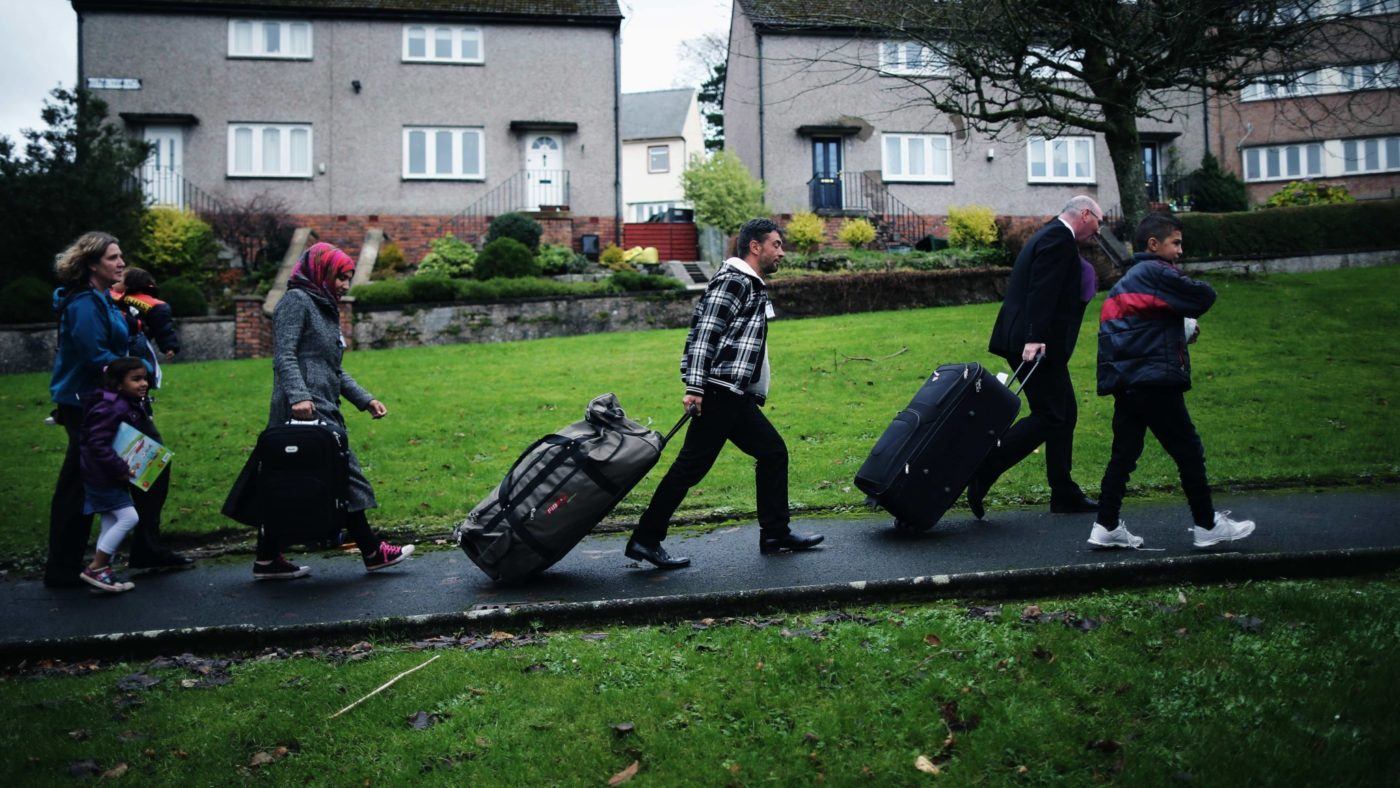The latest thing we have to abnegate ourselves over is this idea that asylum seekers are only being offered the cheap seats in British society. According to the usual sources this is a matter of shame. So I hope we all do feel suitably ill at ease with ourselves?
The actual complaint is, according to an investigation by The Guardian, that five times as many asylum seekers live in the poorest third of the country as in the richest third. This is something which seems terribly sensible to me, but for The Guardian it is front-page news which MPs have denounced as “a deeply unfair shambles”.
Just so that everyone’s clear what an asylum seeker is, it is someone who has a well-founded fear of death, mutilation or oppression if they stay at home. At least that’s what a successful asylum seeker will be, once we’ve weeded out those who are just economic migrants.
Under the usual UN rules – and the rules of common humanity too – we have an obligation to take in and care for those who do have this status. One argument for taking on such a duty is that we’d like to know such safe havens exist if the Corbyn Terror ever does descend.
But do note what our duty is. It is to take in and care for asylum seekers. All of this happens at our expense. We can, as we do, decide upon status at some point after the initial claim is made and it is certainly possible that we could be a bit more efficient at that. For, once their claim of asylum is accepted, people can go out to work in the normal economy and provide for themselves. But until then bed and board is, as it should be, on our tab.
Why wouldn’t we offer to feed and house people fleeing real terror?
At which point why they’re in the cheap areas of the country rather than the expensive should be obvious. We’re not going to put them up in Eaton Square, are we? Not when we’ve got to reserve some of that for affordable housing for the locals.
But, to be uncharacteristically serious for a moment, the great economic dilemma – the only important question – is that we have unlimited human desires and wants, and yet scarce resources to be able to sate them. Taking in those fleeing from the bombs and the bigotry of elsewhere are quite high up our list of things we should be doing. But that point about scarce resources means that any and every budget to do anything is limited.
And thus any budget to do anything must be deployed efficiently. For this allows us to either satisfy more of those desires and wants, or perhaps to deal with more of one specific need.
So, yes, of course people are going to be shunted off into those cheap seats. Why would we even dream of paying for rent in London when we could house 10 times the number of asylum seekers in Rochdale for the same sum?
Do not forget, this is not those who have gained asylum that we are talking about, this is seekers. Seekers are not allowed to work while they wait the 6 months (yes, we should be more efficient here) for a decision.
The location of that waiting period, even if it’s a place with no jobs, should be determined by how many can we help with our limited resources.
That asylum seekers are sent to Rochdale, Glasgow and Middlesbrough might seem a little unkind given what are own metropolitan reactions to those places might be. But they’ll hold no terrors for those whose very claim is that remaining at home means death. And by being economical with the housing bill we’re doing the very thing we should be, allowing ourselves to take care of more such people.
Seriously, what does anyone think was going to happen? We’re paying, as we should. But for precisely that reason, we should be sending asylum seekers to the areas of the country where housing is cheap.


